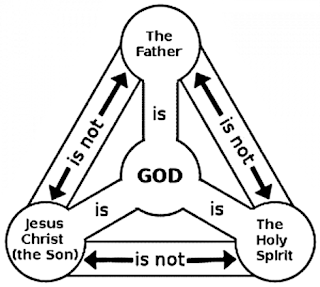madame moiselle
❁ listening to lullabies ❁
Personally, I was. Then, my dear friend (which I will not mention since they want to stay out of it) made me realize all kinds of religion are pure bullshit (don't get me wrong, I ain't hating on religious people, but on religion in general).
We can exclude Buddhism. Buddhism is cool. It's just the story about a dude that sat under a tree for a long time and went "Oh dude I realized the key to super ultra relaxation!" That's chill.
The religions I disdain the most are two:
There are a big number of reasons as to why I left Christianity:
- Christianity - the one I was involved into.
- Islam - the one where terrorists supposedly come from.
Anyway, if you still believe in God after all of this, post your counter-arguments and I will be more than happy to debunk them to make you realize the truth.
- The Bible - Seriously? Who needs a thousand metaphors to figure out you shouldn't be a dick? (Thanks, Bo Burnham). And let's not talk about the contradictions! God is supposedly an omnipotent being that knows what was, what is, and what will.
- Adam And Eve - THEN WHY IN THE FUCK did our dear All-Father (do you guys call him that? Or is that Odin from the Nordic Mythology?) put the Tree of Knowledge if he ALREADY KNEW IN ADVANCE that Adam And
StEve would commit sin and eat the apple off of it?- Lucifer - Omnipotent beings don't make mistakes. THey're just not able to. Unless they want to. And so, why the fuck was Lucifer (or Samael, if you're that nit-picky) psychologically able to rebel? How did God create him knowing his mindset would make him rebel? He must've created Lucifer with the intent of him rebelling.
- Hell - No matter how much you rape, kill, or destroy in life -- no temporary crime or sin deserves PERMANENT punishment in the form of torment. To allow this to happen and be capable of stopping it is to be evil. According to this large book I have on my shelf called, and I quote "The Old Testament", Hell is eternal. Eternal punishment means Permanent punishment. Temporary crimes do not amount to permanent punishment. It is an injustice. And injustice, by strict definition, is evil. And don't go around saying that Satan rules hell because that's not true mate. Satan is simply the warden. Our friend God is the maker and rule-giver!
- Heaven - Is there free-will in heaven? If no, then what a shit place. If yes, then there's sin. Sin originates from free-will. That means Heaven is sinful and Heaven is flawed.
- Homosexuality - Yeah, I'm looking at you, you gay-haters. Homosexuality is found in over 1000 animal species. Wanna know what is NOT found in animals? Chastity. That's right. Priests and Nuns do something against nature, and thus against God's will! Why would God create something that he doesn't approve of? He is either not omnipotent and that caused a mistake...or he is evil and wanted gays to suffer by putting them on Earth, pointing his finger at them and saying to every religious person that they're bad because they like people of their own biological sex.
- Old Testament vs New Testament - In the Old Testament, God killed over 10 million people. In the New Testament, he's an all-loving entity that forgives all. He forgives all? Yeah, right. Explain Hell, purgatory, and the fact that he wasn't so all-loving before. The Flood. Remember that? Exactly. He was angry at people because they were using their own free will to do stuff he didn't want them to do (mind stopped working? Yep! Mine did. Had to reboot it a couple of times). (Psst, Satan killed no more than 15 people in the Bible).
ACH the questions xD I've asked them all----and I think I've got an answer for each one, but of course, in the end you won't be fully convinced. I'll try and see if my answers are good enough. By the way, I'm Christian. I don't like Islam either---all of my external family is Muslim too. Still haven't had a chance to ask how they feel about ISIS.


